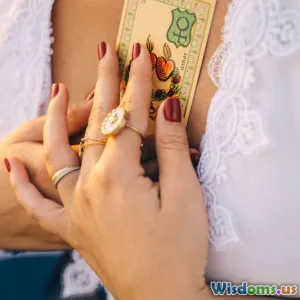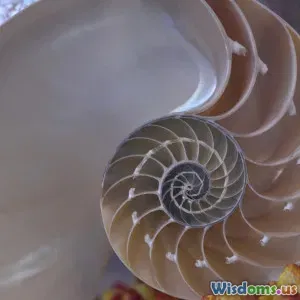
Decoding Mystical Symbols in Our Lives
6 min read Explore how mystical symbols shape our understanding of the supernatural and their significance in daily life. (0 Reviews)
Decoding Mystical Symbols in Our Lives
Mystical symbols have fascinated humans for centuries, appearing in various cultures, religions, and philosophies worldwide. They serve as conduits for deeper understanding, representing concepts that often elude straightforward explanation. In this article, we will explore the significance of these symbols, how they manifest in our lives, and what they reveal about the mysteries of the universe.
Understanding Mystical Symbols
Mystical symbols are visual representations that convey complex ideas, beliefs, and emotions. They are often used in spiritual practices, rituals, and art. From the ancient Egyptian Ankh to the modern peace sign, these symbols carry meanings that resonate with the collective consciousness.
The Language of Symbols
Carl Jung, a prominent psychologist, believed that symbols are a language of the unconscious mind. He argued that they help individuals connect with their inner selves and the larger universe. This idea suggests that symbols are not just arbitrary designs; they hold significant psychological and emotional weight.
Common Mystical Symbols and Their Meanings
-
The Eye of Horus: Originating in ancient Egypt, this symbol represents protection, royal power, and good health. It is often used as an amulet to ward off evil.
-
The Pentagram: A five-pointed star that has been used in various cultures, the pentagram symbolizes the elements (earth, air, fire, water) and the spirit. It is commonly associated with Wicca and other pagan traditions.
-
The Yin-Yang: This symbol from Chinese philosophy represents the duality of existence—light and dark, male and female, and balance. It encourages harmony in life and understanding the interplay of opposites.
-
The Flower of Life: Composed of multiple overlapping circles, this symbol is believed to represent the cycle of creation and the interconnectedness of all life.
-
The Labyrinth: Often found in ancient cultures, labyrinths symbolize the journey of life and the path to self-discovery. Walking a labyrinth can be a meditative practice, representing the twists and turns of our personal journeys.
The Role of Symbols in Our Lives
Personal Significance
Many people find personal meaning in symbols that resonate with their experiences and beliefs. For example, someone may wear an amulet featuring a specific symbol for protection or guidance during challenging times. These symbols often serve as reminders of our values, goals, and aspirations.
Cultural Context
Symbols are deeply rooted in cultural traditions and can reveal much about a society's values and beliefs. They can bridge gaps between generations, connecting individuals with their heritage and shared history. Understanding these symbols can enhance our appreciation for diverse cultures and their contributions to human knowledge.
Spiritual Guidance
In spiritual practices, symbols can function as tools for meditation, visualization, and manifestation. They can help individuals access higher states of consciousness or connect with the divine. For example, using a mandala during meditation can enhance focus and provide a sense of peace.
How to Incorporate Mystical Symbols into Daily Life
-
Mindfulness Practices: Integrate symbols into your meditation or mindfulness practices. Visualize them to promote relaxation and focus.
-
Art and Decor: Surround yourself with symbols that resonate with you. This can be through art, home decor, or jewelry, serving as daily reminders of your intentions and beliefs.
-
Journaling: Explore your feelings about specific symbols by keeping a journal. Reflect on what they mean to you and how they influence your life.
-
Study and Research: Delve deeper into the history and meanings of symbols that intrigue you. Understanding their origins can enhance your appreciation and connection to them.
Conclusion
Mystical symbols serve as powerful tools for understanding ourselves and the world around us. By decoding these symbols, we can unlock insights into our personal lives, cultural heritage, and spiritual paths. As we navigate the mysteries of existence, engaging with these symbols can provide clarity, direction, and a deeper connection to the universe. Embrace the symbols that resonate with you, and allow them to guide you on your journey through life.
Rate the Post
User Reviews
Popular Posts





















